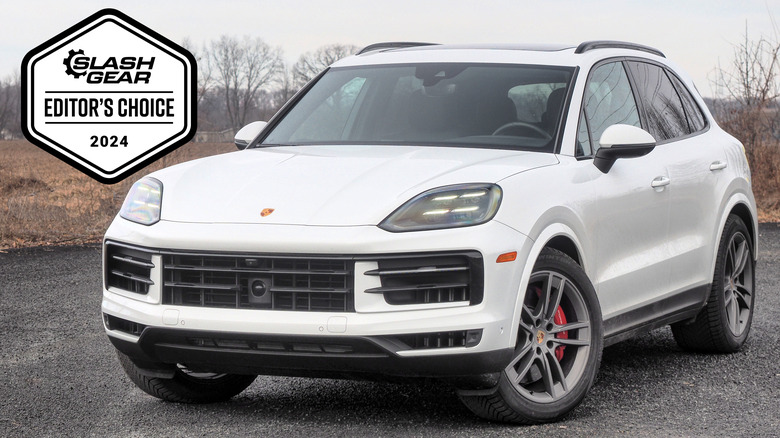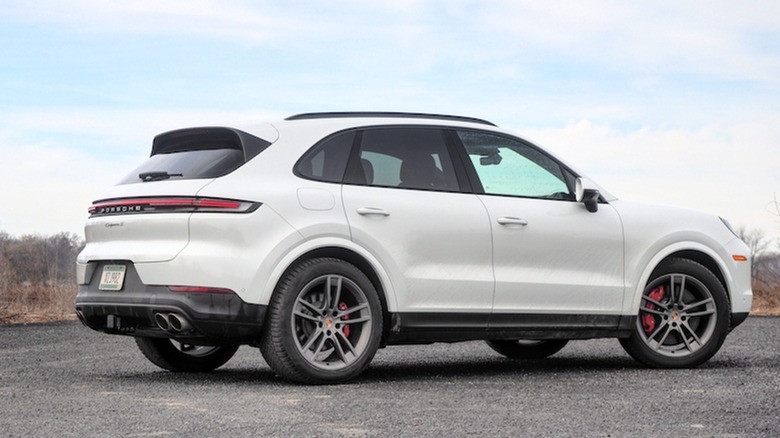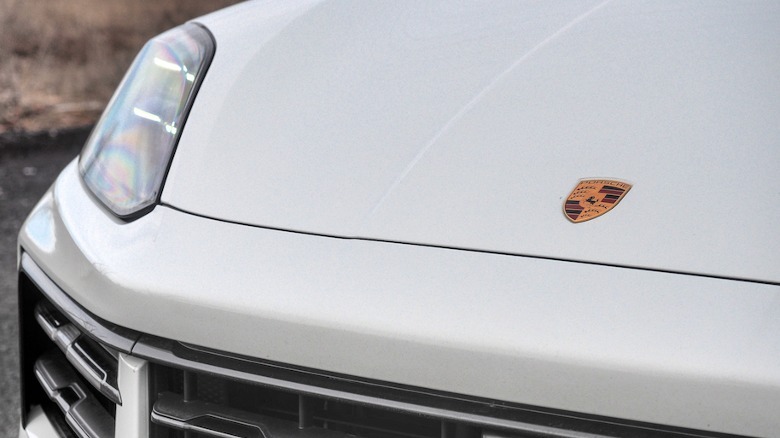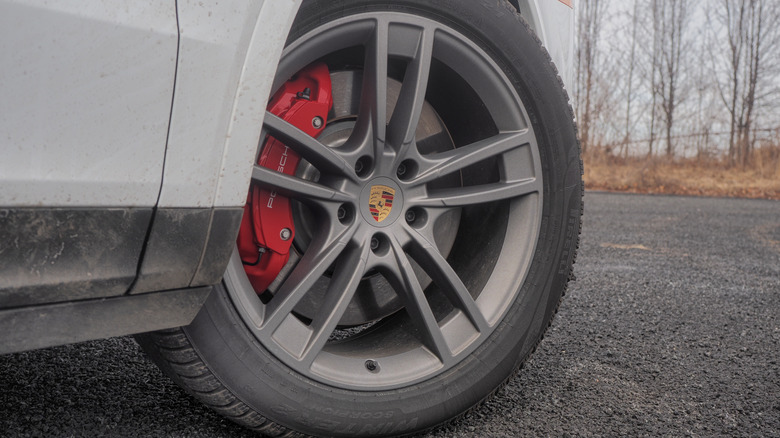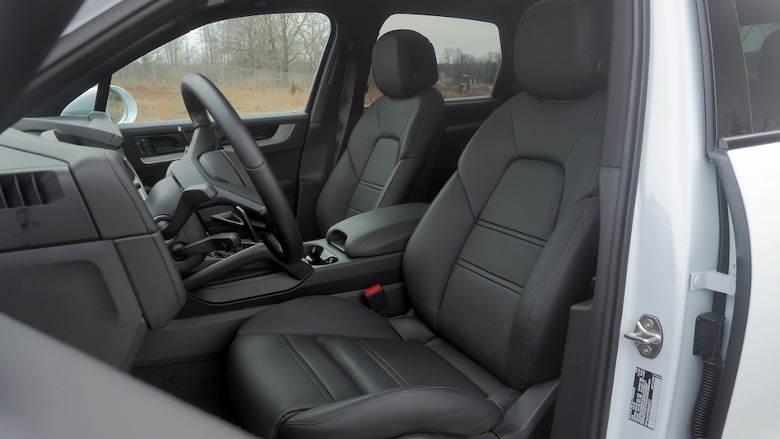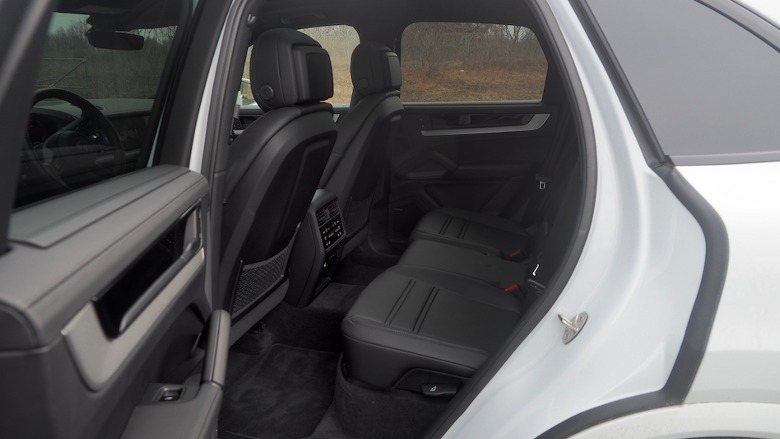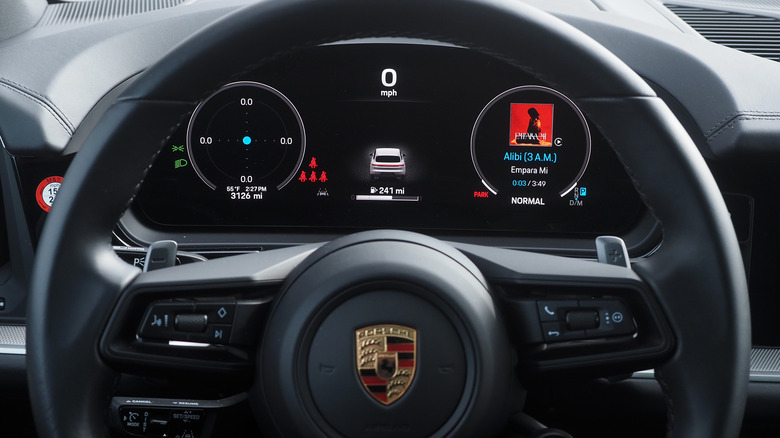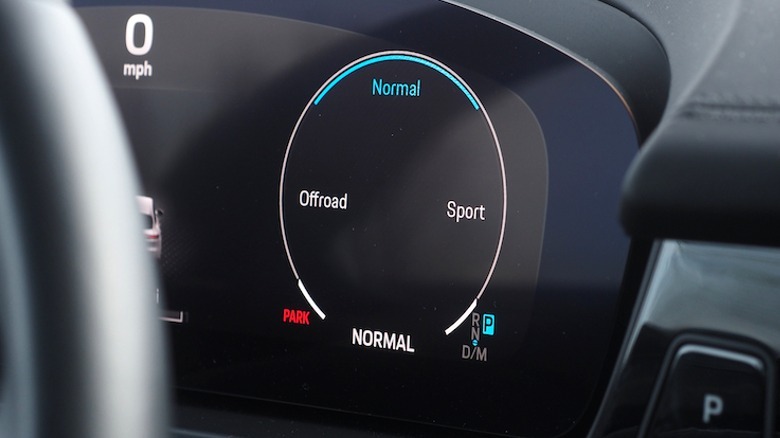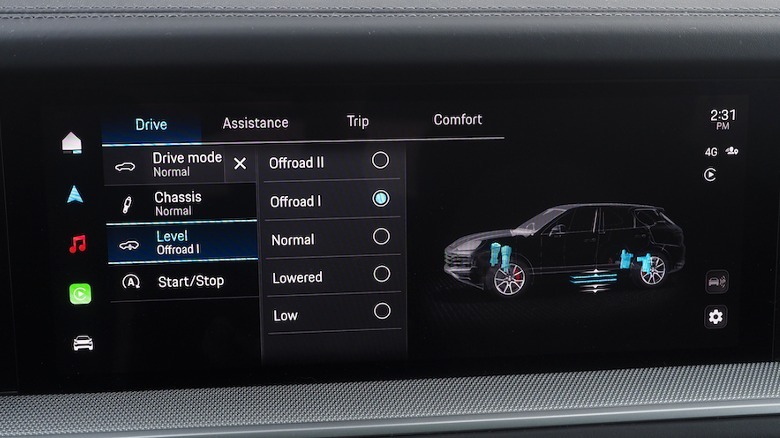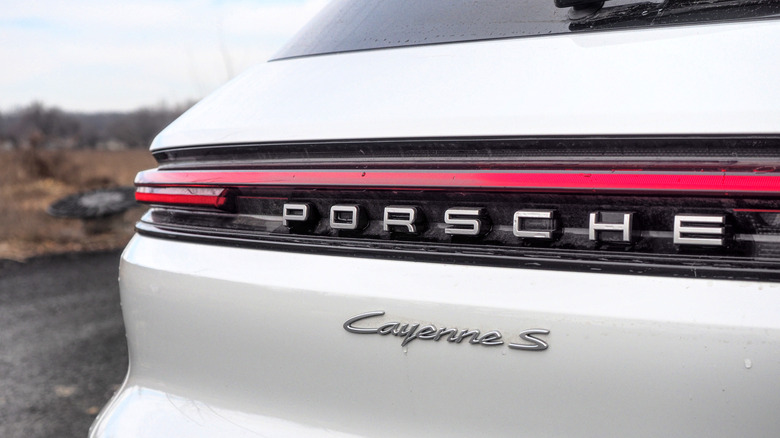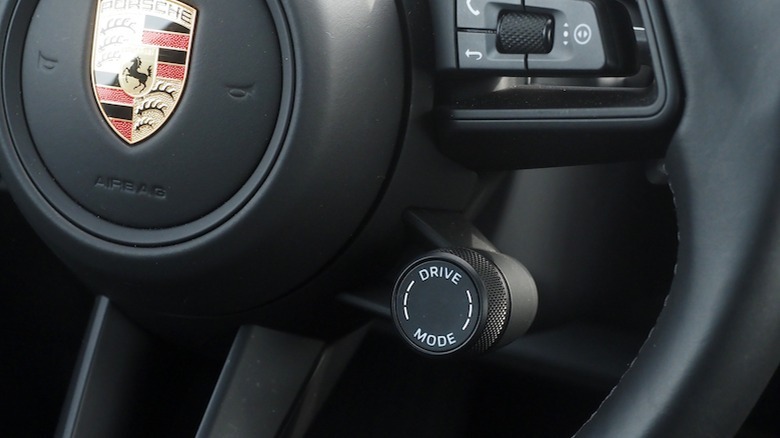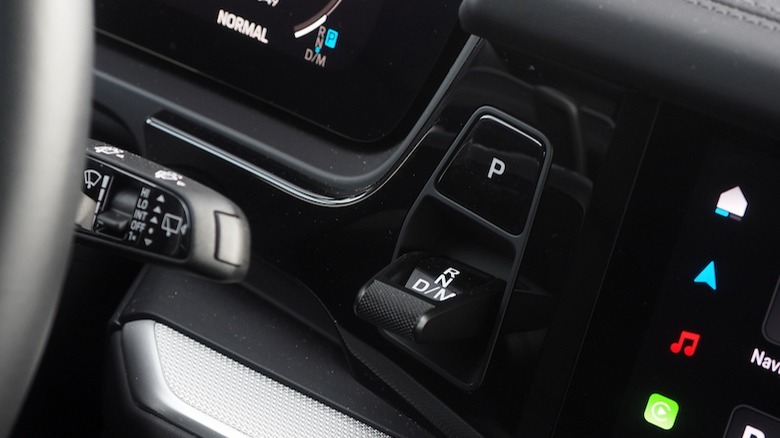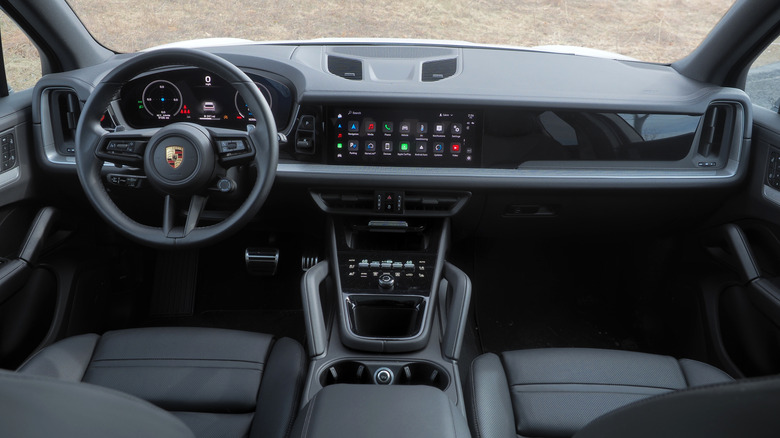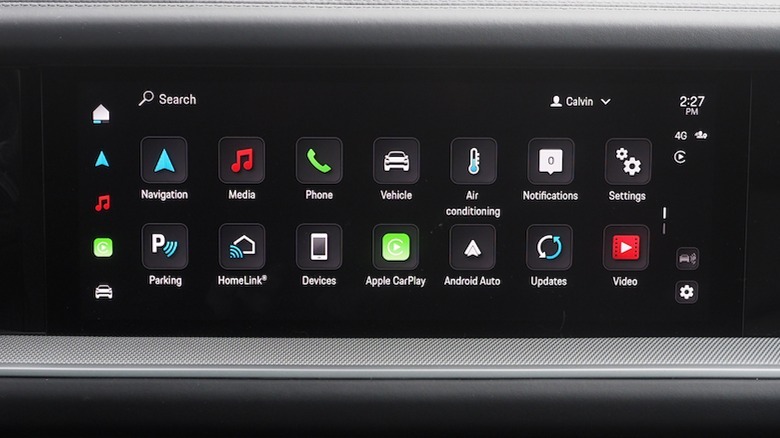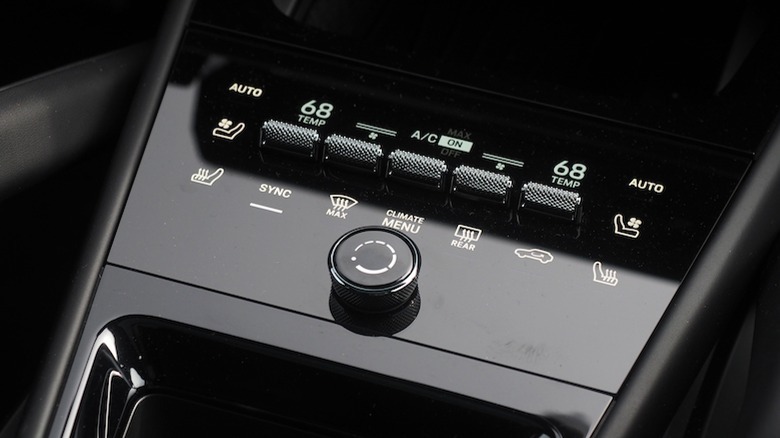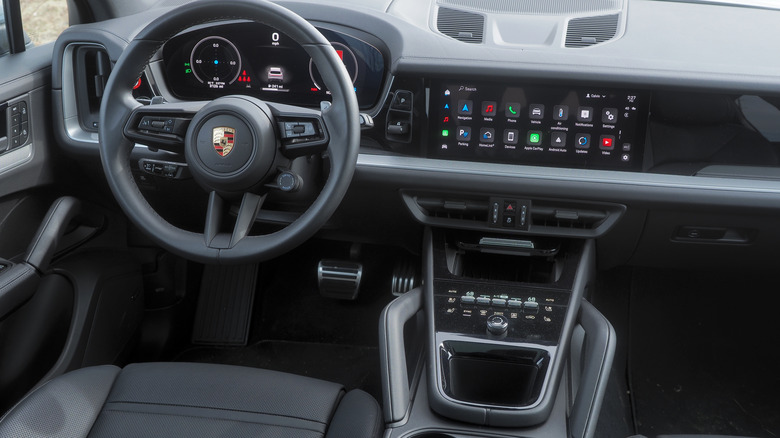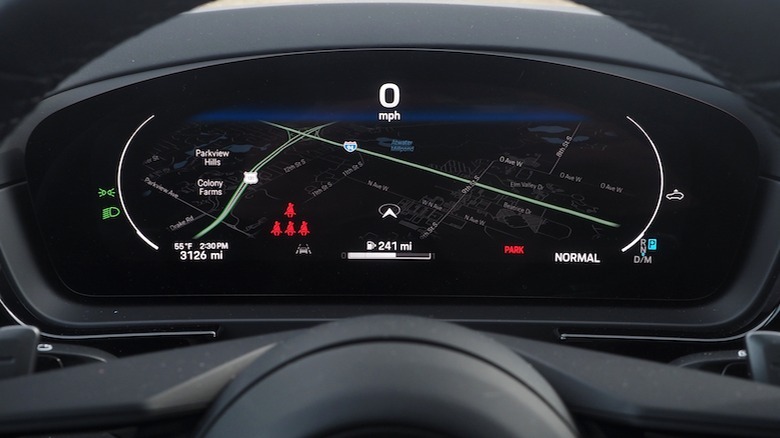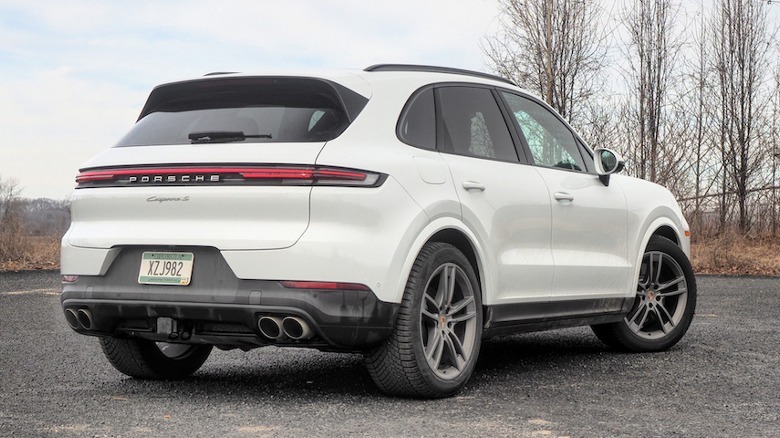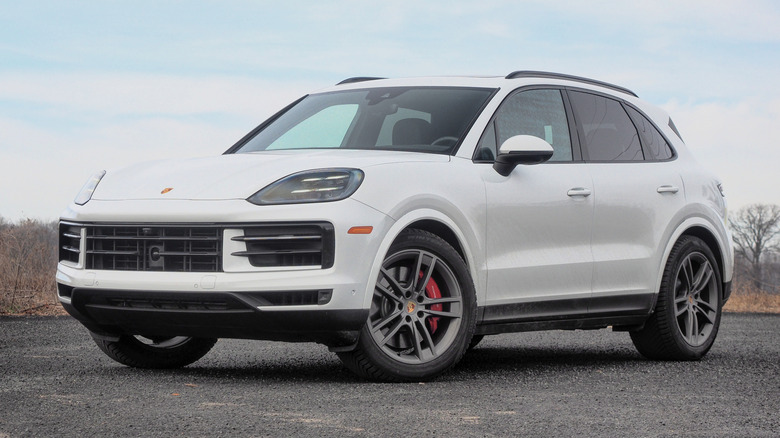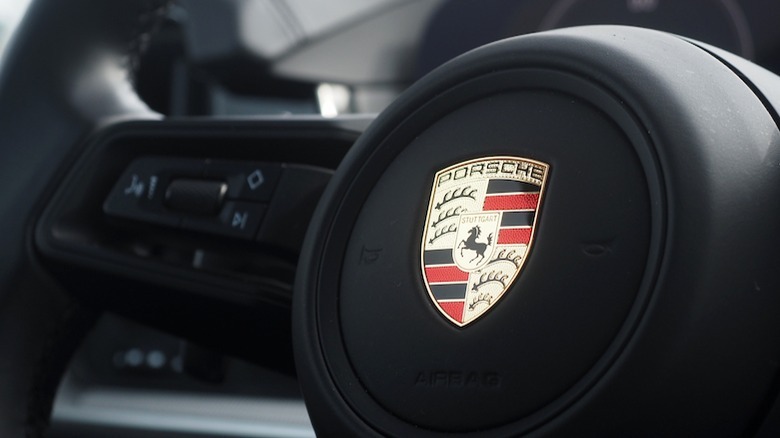2024 Porsche Cayenne Review: The Expensive Benchmark
- Porsche engagement distilled into a family ride
- Cabin tech upgrade is first class
- V8 in Cayenne S pairs performance and a great soundtrack
- Expensive, especially if you dip into the options
- Five seats only
Hindsight is 20/20, but few could've predicted how well the Porsche Cayenne would be received. Initial skepticism — and outright hostility — about a sports car company diversifying into SUVs has been thoroughly upended since its original debut back in 2002, the Cayenne's sales success (and that of its soon-to-go-electric Macan little sibling) helping fund more beguiling 911 and 718 development. Now, in an update that isn't quite a new model, but kind of is, the 2024 Cayenne gets to demonstrate it's not just a cynical sales ploy.
Officially part of the third generation launched in 2017, this mid-cycle refresh proved to be more aggressive than most. While the core crash structure is carried over, there are changes pretty much everywhere else, from the bodywork to the drivetrains to the cabin and its lavish tech upgrade.
The result looks sharper and crisper, even if it's instantly recognizable as a Cayenne. Porsche's squinting LED headlamps and tush-strapping rear light bar conspire with the bolder crease lines to shed some of the visual bulk of the older versions. While this particular example is the Cayenne SUV, rather than the marketing-misnomer Coupe variant (that still has four doors and a hatchback rear but pairs that with a more aggressively curvaceous roofline), it looks more taut and compact than ever. Rest assured, though, the dimensions are basically the same as before.
Sat right in the middle of the 2024 line-up, the Cayenne S is arguably the epitome of the nameplate. Priced from $95,700 (plus $1,650 destination), it is, with the briefest scan of the options sheet, a six-figure ride in practice.
It's the options that get you
This particular Carrara White Metallic example is illustrative of that. The paint is $850; the black leather interior is a further $3,760. Budget $2,390 for the Adaptive Air Suspension and PASM (Porsche Active Suspension Management) system that can adjust ground clearance from 7.5 to 9.3 inches, $3,350 to upgrade the standard 20-inch alloys to these handsome 21-inch wheels, and $830 for roof rails. The tow hitch — rated for a healthy 7,700 pounds — is $660; the soft-close doors are $720; high-gloss black window trim is $400, and the puddle light projectors are a whimsical $330.
Inside, heated front seats with 8-way power adjustment are standard, along with dual-zone climate control, LED interior lighting, navigation, a wireless phone charger (now bumped up to 15W), four USB-C charging ports potent enough to charge most tablets and laptops, and a 10-speaker, 150W audio system. Spend $8,090 on the Premium Package Plus, however, and you upgrade to a panoramic glass roof, quad-zone climate control, 14-way power seats with heating front and rear, ventilation for the front seats, better ambient lighting, a Bose surround sound audio system, and a 360-degree camera with parking support.
That package also includes adaptive cruise control, but you'll pay a further $1,320 for Porsche InnoDrive, which takes road topography into account to automatically adjust cruise control speed, contributes more help in traffic jams up to 37 mph, and adds active lane-keeping assistance. All-in, with power rear window sunblinds, a heated steering wheel, and an Air Quality System, you're looking at a cool $121,440, including destination.
The V8 is back, and it's a thing of beauty
As standard is Porsche's 4.0-liter twin-turbo V8 gas engine, ousting the old (and good, but not quite as glorious) 2.9-liter twin-turbo V6 and delivering a more-than-healthy 468 horsepower and 442 lb-ft of torque. It's paired with an 8-speed Tiptronic S gearbox and all-wheel drive, and the automaker says it will propel the 4,874 pound SUV from 0-60 mph in 4.7 seconds.
If that's not fast enough for you — and the regular Offroad, Normal, and Sport drive modes are insufficiently flexible — the $1,110 Sport Chrono Package trims it to 4.4 seconds and throws in a Sport Plus mode. It also adds a Sport Response button to the middle of the drive mode dial on the steering wheel: jab that, and you get 20 seconds of the Cayenne S at its most giddying, ideal for overtaking or making the most of a sudden series of twists.
Even without that, the Cayenne S isn't slow. The V8 sounds great, with a refined but noticeable burble through the brushed stainless steel tailpipes, and pickup is plenty fast whether you're in Normal or Sport mode. The air suspension — replacing the standard steel springs, which Porsche now equips with adaptive dampers regardless of trim — firms up nicely from its pampering default, though there's still enough body roll in the corners to remind you that you're driving a sizable SUV. It's hard to imagine anybody feeling disappointed, however, even if the hustle and poise on offer here don't stray into outlandish or wild.
You should consider the hybrid
Porsche has more powerful Cayenne models, of course, if outlandish and/or wild are your lodestar (plus a $3,590 active roll stabilization option, not fitted to my Cayenne S), all the way up to the Cayenne Turbo E-Hybrid with its supercar-rivaling 729 horsepower and a frankly ridiculous 3.5 second 0-60 mph time. The coupe-only Cayenne Turbo GT is even more excessive. I'm not saying I don't see the appeal — and the plug-in hybrid drivetrain is markedly improved in this newest-generation SUV, with a bigger battery and more performance — but anybody suggesting the Cayenne S is insufficient in some way seems deeply misguided.
In fact, the strongest argument against this "S" model is the ever-so-slightly-cheaper 2024 Cayenne E-Hybrid. $4k less, it's down a mere five horsepower but is actually a tenth of a second faster in the 0-60 mph dash. Top speed is "only" 158 mph, versus the Cayenne S's 169 mph, a shortfall which seems irrelevant compared to the convenience of driving on electric-only power.
Though the EV range of the Cayenne PHEV doesn't match that of the upcoming electric Macan, there's no denying that even just a little silent wafting suits the idea of a luxury SUV nicely. It should also help with the economy. The EPA says the Cayenne S could see 15 mpg in the city, 21 mpg on the highway, and 17 mpg combined; my own mixed driving clocked in at just over 15 mpg.
A Taycan-inspired cabin tech glow-up
Porsche buyers aren't likely to be afraid of a little premium gasoline, though, and from behind the wheel, it's easy to see why the Cayenne has become the benchmark for high-end, low-fuss people-moving among those who can afford it. The refresh's big tech update illustrates that nicely, with a new 12.6-inch curved driver display and 12.3-inch center touchscreen, all running the PCM 6.0 infotainment platform.
That can be as complex or as simple as you want it to be. Several driver display layouts are supported, ranging from traditional gauges through pared-back minimalism to data overload. Native apps for services like Spotify, meanwhile, might make you skip hooking up your smartphone (though there's now standard wireless Apple CarPlay and Android Auto, with a persistent row of shortcuts along the left side to make jumping between the native and the phone interfaces straightforward).
There are physical controls for the essentials, including climate control and a volume knob. It's a more streamlined panel — not to mention a fingerprint-hungry one, with the gloss black finish — as Porsche has done away with the big transmission selector and replaced it with a stubby lever to the right of the steering wheel. Everything feels solid and reassuringly expensive, from the metal paddle shifters through to the click of the wheel buttons, and there are plenty of storage bins and cubbies. A healthy 27.2 cu-ft of trunk space expands to 60.3 cu-ft with the rear seats folded.
Dominating the SUV sweet spot
There's plenty of tech here, but it doesn't feel in-your-face. Yes, Porsche will sell you a $1,490 head-up display, a $1,490 front passenger display (that's specially polarized so as to be invisible to the driver), and a Burmester 3D surround-sound audio system for a whopping $7,000, but none of it seems necessary. And, more important, still, the Cayenne S doesn't leave you feeling shortchanged if you don't go absolutely wild with the options sheet.
There are a handful of reasons to look elsewhere. Porsche's SUV seats five, and while a seven-seater is said to be in the pipeline, for the moment, you'll have to look elsewhere if three rows are essential. Mercedes' GLS and BMW's X7 are the most obvious alternatives there — bigger altogether than the Cayenne and less fun to drive — while Porsche's own sibling brand Audi has the undeniably appealing 2024 SQ7 that fits the bill, too.
Then there are some of Porsche's own options, which don't really seem so much at home here. The $9-10k you'll spend on ceramic composite brakes, for example, doesn't really seem necessary: the standard brakes are easily up to the job unless you're pushing harder than is probably advisable. The same goes for Porsche Torque Vectoring Plus, which, for $1,500, adds an electronically-controlled rear axle diff lock to nudge power left or right as required. Again, clever, but maybe better saved for more ostensibly sporting versions of the SUV. Rear axle steering might be easier to justify, at $1,280, if the regular Cayenne didn't handle so predictably already.
2024 Porsche Cayenne Verdict
When it comes to the 2024 Cayenne, it's tough not to be reminded of the old "there are three priorities, you can pick two" adage. In Porsche's case, the selection has clearly been "luxury" and "performance"; unfortunately, that leaves "affordability" out in the cold. For anybody cross-shopping with other high-end SUVs, the spiraling potential of the Cayenne's options list could trigger conniptions. Anybody who has wandered through the build options for a 911, though, is likely to be more laissez-faire.
With time behind the wheel, it's equally tough not to conclude that Porsche's decision is the correct one. The Cayenne is the superlative sports SUV, even if its starting price should be considered a vague suggestion rather than anything close to what you'll end up paying. And, in Cayenne S form, with the return of the V8, it's difficult to argue with this combination of pace, plush, and prestige.
There are excellent, rational reasons why the hybrid Cayenne versions are more sensible, and those with home charging capabilities should absolutely consider them. Yet as sweet spots in an already well-sugared range go, the 2024 Cayenne S is ample demonstration of why Porsche's SUV not only countered its critics but, in many cases, converted them entirely.
